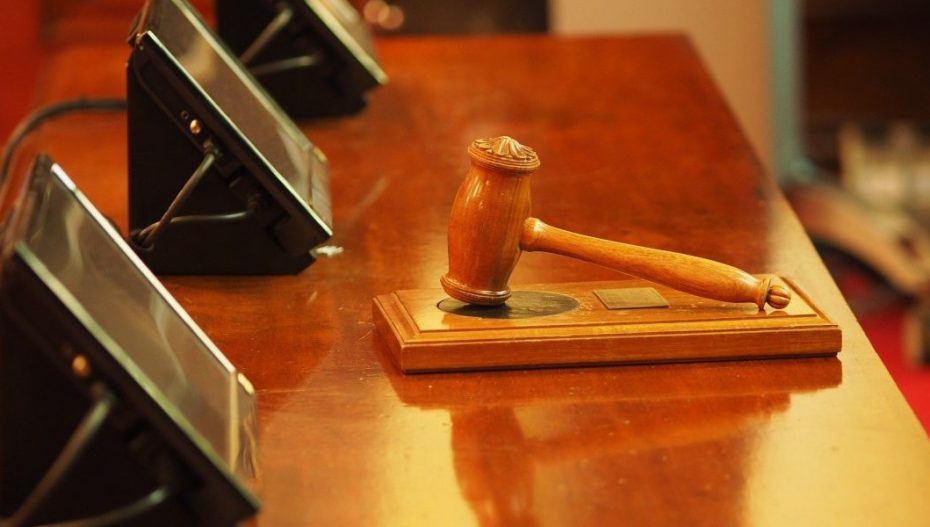The Supreme Court has been the effective guardian of citizenry and human rights barring few historical exceptions. So what happens when such trust is misused by the government to place judges in positions after their retirement?
In February, former Supreme Court judge, Justice S. Abdul Nazeer, was named governor of Andhra Pradesh, a month after retirement. Among cases that were important to the Union government which were heard by Justice Nazeer was the Ayodhya title suit. Justice Nazeer’s appointment is the third public appointment from the Ayodhya title suit judgment bench.
The practice of placing retired Supreme Court judges started with first Chief Justice of India, Saiyyad Faizal Ali, being appointed as governor of Orissa after his stint as an ad-hoc judge under Article 128 of the constitution. The former CJI then chaired two State Reorganisation Commissions, after which he was appointed as Assam’s governor, a position he held till he passed away in 1959.
The issue of the government ‘tempting’ judges with positions after their retirement in a top court was raised as a serious concern in the Constituent Assembly Debates, where such a possibility was seen as impinging upon the impartiality of courts. Members like K.T. Shah, P.K. Sen and B.T. Chand argued in favour of removing any retirement age to give security of tenure to judges of the Supreme Court.
However, Dr. B.R. Ambedkar said, “The judiciary decides cases in which the Government has, if at all, the remotest interest, in fact no interest at all. The judiciary is engaged in deciding the issue between citizens and very rarely between citizens and the Government.”
The observations of chairman did have considerable impact as Article 124 (7) of Constitution remained unamended. However, the Union government now is a litigant in a substantial 15.4% of the total active cases pending with the Supreme Court.
The practice of offering sunset jobs to retired judges has also normalised within the political corridors of Delhi, with 70% of retired judges taking up on public appointments post their retirement since 1999.
Institutional independence and judiciary
Institutional independence, an inherent part of basic structure doctrine, has remained significant to uphold the public perception of judiciary as ‘unbending before any economic or political power.’ The major tenet of institutional independence is impartiality, the construction of which mandates that the judges base their decision solely on facts of the case and law applicable, away from temptations of post-retirement offers through executive patronage.
Explaining the meaning of ‘independence’, the Supreme Court in the case of S.P. Gupta vs Union of India, emphasised upon the importance of public faith in judiciary. The court observed, “Judges should be of stern stuff and tough fibre, unbending before power, economic or political, and they must uphold the core principle of the rule of law which says Be you ever so high, the law is above you.”
The judiciary draws its legal authority from the constitution, but its credibility is derived from the trust and faith of the people. The constitutional courts are considered as ‘judicial sentinel’ and the perception of judges being impartial and detached from any influence is essential to maintain this public trust in the judiciary.
Trust
The practice of accepting the statutory and discretionary positions in the executive by retired judges reflects upon the institution as a whole in bad light, to some extent eroding the trust of people in the institution.
According to an independent empirical study on ‘Corruption in the Supreme Court’ done by Madhav S. Aney, Subhankar Dam and Giovanni Ko, the likelihood of the government winning the case rises by 13-17% when a judge who retires shortly before an election is substituted with one who retires long before an election. This results in situation similar to ‘revolving door phenomenon’ propagated by Andrew Baker, which represents conflicts of interest as individuals seek to use their current positions to secure future employment in another branch.
Such extra-judicial appointments weaken the ability of courts to carry out justice effectively. This practice casts doubt on the pronounced judgments by Supreme Court, also impinging upon its cultivated trustworthiness. The judicial independence of courts can only survive through public trustworthiness reposed in the institution. John Roberts has observed, “The judiciary’s independence is a means to an end: earning the public’s trust in the fairness and impartiality of the legal system.”
Addressing this problem in the 14th Law Commission Report (1958), the Law Commission had recommended that in order to ensure the integrity and sanctity of the judiciary, judges shall be barred from accepting any alternate employment in the Union or the state, as a post-retirement job. The recommendation emerged from the fact that it is important to ensure that judges are appointed and retired in a fair manner, minimising potential political interference in the working of the judiciary. Such a measure could include increased age of retirement, adequate pensions, and clear guidelines for retired judges seeking any further employment.
However, waiting for the government to institute a law barring such practice, would implicitly be allowing the practice to continue unabated. It is the judges who, in the interest of upholding trust in judicial bodies, will have to realise that their constitutional responsibility lies in restraining themselves from accepting such jobs.
This article was first published by TheWire and written by Mihir Nigam and Prithvi Raj Chauhan
Mihir Nigam and Prithvi Raj Chauhan are LLB students at the National Law University, Jodhpur.
Also Read: Mystery Shrouds Uday’s Death, Project Cheetah Questioned













